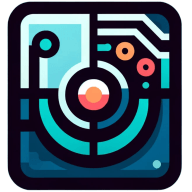4 Major Challenges in It Research and How to Overcome Them
The world of IT research is constantly evolving, presenting both exciting opportunities and significant challenges. This article delves into the major hurdles faced by IT researchers today, from assessing AI tools to implementing data management strategies. Drawing on insights from industry experts, it offers practical solutions to overcome these obstacles and advance the field of IT research.
- Assess AI Tools' Long-Term Operational Value
- Narrow Research Focus from Real-World Experience
- Implement Early Data Management Strategies
- Design Modular, Concept-Driven IT Research
Assess AI Tools' Long-Term Operational Value
One major challenge we've encountered when researching AI-driven tools in the IT space is cutting through the hype to assess true operational value and long-term viability. While AI promises efficiency gains—automated ticket triage, predictive maintenance, intelligent monitoring—the reality is that many tools are either overly generalized or require significant customization to deliver consistent results in real-world environments.
A key issue is sustainability: vendors often showcase polished demos, but long-term support, model updates, and integration flexibility are rarely addressed up front. We've found that some AI platforms degrade over time without proper tuning or fail to adapt to evolving client environments, creating more overhead than they save.
To navigate this, we evaluate AI tools with a 12-month lens: How adaptable is the model? What happens when the data shifts? Can our team support it without vendor lock-in? Testing in live scenarios and involving frontline technicians in feedback loops helps expose these gaps early.
For others evaluating AI tools, the advice is simple: don't just ask what it does—ask how it performs over time, how it breaks, and who's responsible when it does. Hype fades fast, but operational burden persists.

Narrow Research Focus from Real-World Experience
One major challenge I faced in IT research was narrowing down the topic. At Tech Advisors, we've spent years helping clients solve tech and security issues, but turning that real-world experience into focused academic research was overwhelming at first. I started with a broad idea around compliance failures in small businesses. It was too much. Elmo Taddeo, my longtime colleague, reminded me of our early work with a CPA firm struggling with multi-factor authentication rollout. That one case helped me define a clear focus: how small firms implement secure login solutions under budget and time pressure.
Once I had the topic, figuring out the right methodology came next. I assumed I'd go with a survey model because it seemed quicker. But as I refined my research question—"How do small businesses adapt to cybersecurity compliance requirements?"—I realized I needed to hear their experiences, not just tally numbers. I switched to qualitative interviews. I spoke with business owners, IT staff, and consultants we've worked with over the years. Their stories gave the research meaning. It also helped that I knew how to listen, ask the right follow-up questions, and compare patterns. That's something years of troubleshooting client issues had trained me for.
If you're struggling with the same thing, my advice is simple: Start small. Pick a topic that matters to you, even personally. Don't chase trends. Ask yourself what you've seen or experienced that others could learn from. And don't hesitate to switch gears. What you start with won't be what you end with. Listen to feedback. Talk to people in and out of your field. And most importantly, pick a topic you're willing to think about, talk about, and wrestle with every day for a year. If you wouldn't do that, keep looking.
Implement Early Data Management Strategies
During one of my IT research projects, I found myself drowning in data from all directions. It was a mess—files everywhere, inconsistent formats, and no clear system to make sense of it all. I realized I needed to get my act together. I started by setting up a solid data management plan, using some reliable software to automate the sorting and processing. This cut down on errors and saved a ton of time. I also broke the data into smaller chunks, which made it easier to analyze and spot trends. Regular team check-ins helped keep everyone on the same page. Looking back, the key takeaway was to plan for data chaos before it hits. If you're diving into IT research, do yourself a favor and set up your data management strategy early on. It'll save you a lot of headaches down the line.

Design Modular, Concept-Driven IT Research
Hi, German Ceballos here, PhD in Computer Science. I've served as a professor at Uppsala University and UNC, with most of my research focused on task-based parallel programming, memory performance, and the analysis of complex interactions between computation and hardware in modern systems.
One of the most persistent challenges I've encountered in IT research is how quickly technologies become obsolete, especially in long-term studies. For instance, in most of our work, we often designed experiments around specific runtime systems or hardware assumptions. However, by the time some papers were published, parts of the stack—such as task runtimes or middleware platforms—were already shifting toward newer paradigms.
Instead of discarding that work, we adapted by incorporating comparative frameworks and focusing on fundamental abstractions, such as data reuse patterns, cache sharing, and scheduling sensitivity—concepts explored in my papers. These abstractions helped generalize findings across architectures and tools.
My advice: design research to be modular and concept-driven. Stay engaged with the community to catch emerging trends early, and when pivots become necessary, make them strategic and explicit in your narrative. Doing so turns technological disruption into an opportunity for more resilient, impactful research.
Hope this helps!



